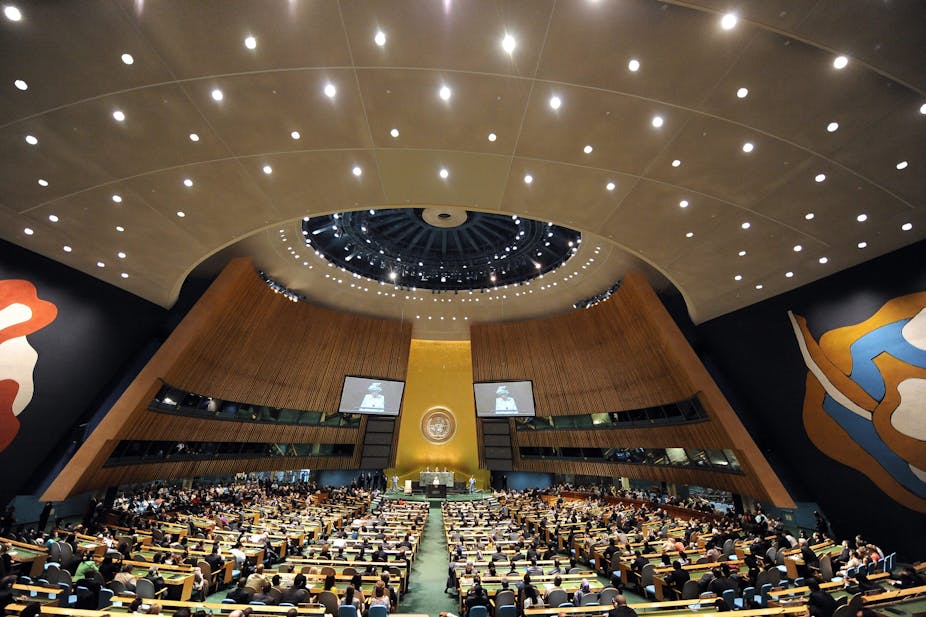Non-communicable diseases – The first in our series of articles about non-communicable diseases is a contribution from the emeritus director of the Pan-American Health Organisation (PAHO), who provides an overview of the threat NCDs pose to global health and development.
Sir George Alleyne has had a pivotal role in having the United Nations call the High-Level Meeting on Non-Communicable Diseases, September 19-20.
This article is based on a talk Sir George Alleyne gave at the Nossal Institute for Global Health’s annual forum on August 31, and an interview he gave while in Melbourne for the forum.
Non-communicable diseases are the biggest killers on the planet but beyond health, they pose a serious threat to development. Their causes are so entrenched that fighting them will require a new pattern of thoughts, beliefs and practices – it will require a new paradigm.
To counter the threat of non-communicable diseases, we need to change the way we live. And we have to start by making everyone understand the seriousness of the threat they pose because NCDs are now the biggest killers in most of the world.
So the road starts with increasing awareness of the prevalence and consequences of the four illnesses that NCD is the shorthand for – cancer, lung disease, cardiovascular diseases and diabetes.
What are non-communicable diseases?
Next, we’ll need to constantly dispel the myths surrounding these diseases, the most harmful of which is their inevitability and our impotence.
Just as importantly, we need to ensure that NCDs are not thought of as a western problem – the danger they pose to the developing world is just as serious if not more so.
Changes in beliefs and practices are urgently required on the political level. To succeed in stemming the onslaught of non-communicable diseases, we will need the world’s leaders to accept the dangers they pose.
This is vital because without courageous leadership, we will lose this fight.
Governments must use all the tools in their arsenal to stop NCDs – they must legislate, regulate and tax for better health of their people.
What can governments do to stop the spread NCDs?
But leadership must also come from other parts of society – businesses must look after their employees and in doing well, also do good.
Civil society must agitate for change and inform the public about the choices that put people at risk of non-communicable diseases and the ways in which we can protect ourselves from developing these illnesses.
Non-communicable diseases are entrenched in our lifestyle so beating them will require a rethink of the way we live. We will have to:
popularise the magnitude of this epidemic,
take new approaches to diet in prevention, and
demand effective and committed political leadership.
Without this new paradigm, non-communicable diseases will wreak havoc on global health and reverse the steps we have taken towards developing the poor countries of the world.
What can we expect to come out of the UN High-Level Meeting this week?
You can watch the rest of the interview with Sir George Alleyne:
- NCDs are not a Western problem – they affect everyone
- Is it too optimistic to expect definite action to come out of the UN meeting?
This is the first part of our non-communicable diseases series. To read the other instalments, follow the links here:
Part Two: Regulating alcohol to control NCDs
Part Three: Stopping the obesity epidemic will require action on the population-level
Part Four: The results of the UN High-Level Meeting on Non-Communicable Diseases on New York September 19-20
Part Five: How plain packaging works to reduce smoking – one of the biggest causes of non-communicable diseases
Part Six: Blueprint for making medicines more affordable for everyone
Part Seven: Action on salt will mean longer, healthier lives
Part Eight: Death by suburban sprawl: better urban planning will combat sedentary lifestyles
Part Nine: Where we come from determines how we fare – the fetal origins of adult disease
Part Ten: Social inclusion brings respect and better health Sri Lankan elders

